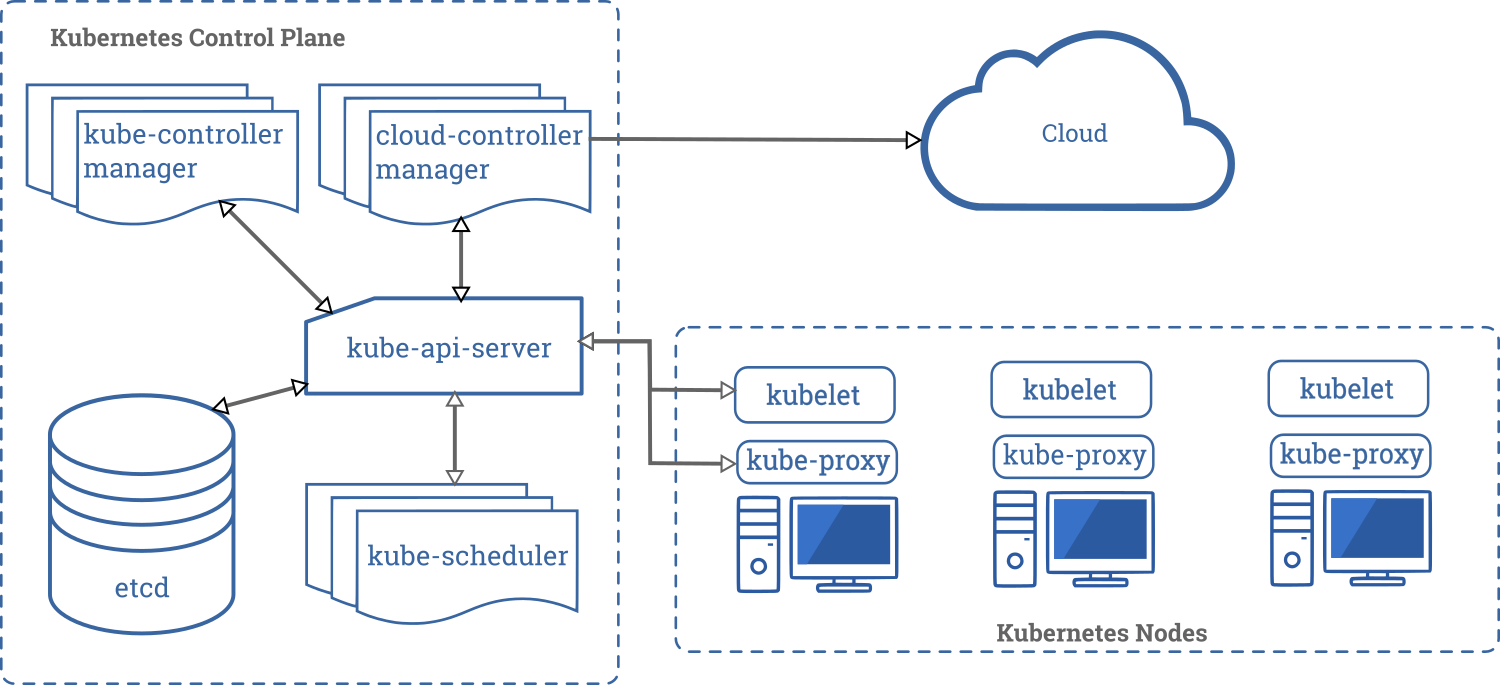Kubernetes is a portable, extensible, open-source platform for managing containerized workloads and services, that facilitates both declarative configuration and automation.


Kubernetes components:
image source: https://kubernetes.io/docs/concepts/overview/components/
Control Plane Components
The control plane's components make global decisions about the cluster (for example, scheduling), as well as detecting and responding to cluster events (for example, starting up a new pod when a deployment's
replicas field is unsatisfied).
kube-apiserver
The API server is a component of the Kubernetes control plane that exposes the Kubernetes API. The API server is the front end for the Kubernetes control plane.
etcd
Consistent and highly-available key value store used as Kubernetes' backing store for all cluster data.
kube-scheduler
Control plane component that watches for newly created Pods with no assigned node, and selects a node for them to run on.
kube-controller-manager
Control Plane component that runs controller processes.
Logically, each controller is a separate process, but to reduce complexity, they are all compiled into a single binary and run in a single process.
These controllers include:
- Node controller: Responsible for noticing and responding when nodes go down.
- Replication controller: Responsible for maintaining the correct number of pods for every replication controller object in the system.
- Endpoints controller: Populates the Endpoints object (that is, joins Services & Pods).
- Service Account & Token controllers: Create default accounts and API access tokens for new namespaces.
cloud-controller-manager
A Kubernetes control plane component that embeds cloud-specific control logic. The cloud controller manager lets you link your cluster into your cloud provider's API, and separates out the components that interact with that cloud platform from components that just interact with your cluster.
Node Components
Node components run on every node, maintaining running pods and providing the Kubernetes runtime environment.
kubelet
kube-proxy
kube-proxy is a network proxy that runs on each node in your cluster, implementing part of the Kubernetes Service concept.
Container runtime
The container runtime is the software that is responsible for running containers.
Addons
Addons
DNS
While the other addons are not strictly required, all Kubernetes clusters should have cluster DNS, as many examples rely on it.
Web UI (Dashboard)
Dashboard is a general purpose, web-based UI for Kubernetes clusters. It allows users to manage and troubleshoot applications running in the cluster, as well as the cluster itself.
Container Resource Monitoring
Container Resource Monitoring records generic time-series metrics about containers in a central database, and provides a UI for browsing that data.
Cluster-level Logging
A cluster-level logging mechanism is responsible for saving container logs to a central log store with search/browsing interface.
No comments:
Post a Comment